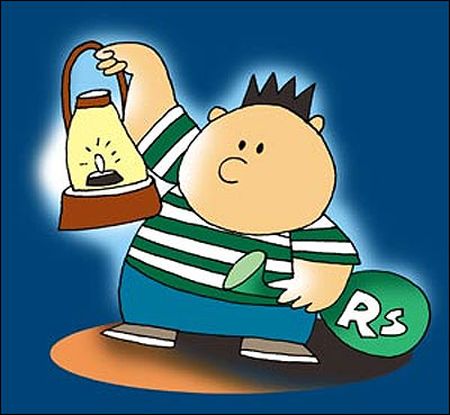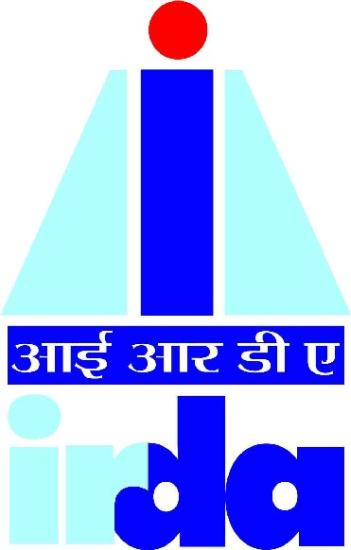 | « Back to article | Print this article |
Relationship manager is not the best advisor
Within hours of receiving Rs 100,000 in his bank account, Murtaza Nulwalla received a call from his bank relationship manager (RM) proposing that he use the money to buy an annuity plan. The RM sounded convincing enough; and, Nulwalla agreed.
But, he realised his mistake soon enough when someone pointed out that he had already been paying Rs 75,000 for three child plans. When he sent an email to get his purchase cancelled, the RM first called back to convince him not to do so.
Then, he issued a veiled threat that Nulwalla would lose his first premium. The email, however, came to Nulwalla's rescue as the bank cancelled the purchase on the basis of his complaint.
However, not all are as lucky as he is. Bank accountholders regularly get calls from RMs, who promise to give the best investment plan, the best home loan, the best credit, and so on. Many end up buying these products, some of which are irrelevant and may even be harmful for their finances.
Click NEXT to read more...
Relationship manager is not the best advisor
Bank RMs sell a range of products of their insurance and brokerage arms - such as investment-cum-insurance plans and demat accounts. Sometimes, they even convince you to dabble in the futures and options segment or buy exotic products that may be a mix of commodities, futures and options, forex trade, equities, and so on.
All of these are done under the pretext of giving your returns a fillip, offering you post-retirement security, and protecting your children's future.
The fact, however, is different. Selling these products earns RMs high commissions. If their salary package is, say, about Rs 600,000-700,000, the target for 'income achievement' is around Rs 80-90 lakh (Rs 8-9 million) - about 12 times the salary.
An RM has to generate that much income, or at least 75 per cent of it, to earn his incentive. It is possible for an RM to earn Rs 300,000 every quarter if he meets all his targets.
Click NEXT to read more...
Relationship manager is not the best advisor
If you were to lose money or were unable to bear the cost of an insurance product, it would be your responsibility. "Though people come to me to file such cases of mis-selling, it's not always possible for want of evidence," explains consumer activist Jehangir Gai.
Business Standard sent emails to a number of private and foreign banks, but none responded.
However, many bank executives agreed off the record that banks' high concentration on fee income leads RMs to sweet-talk their clients into investments that might not be in the best of their interest.
Click NEXT to read more...
Relationship manager is not the best advisor
Stock market and mutual fund investors and buyers of insurance products are more or less aware of the commission earned by their brokers, distributors or agents. But, there is little clarity on the commission RMs earn.
A senior official with a private sector bank says, "in case a customer opens a demat account or buys a mutual fund scheme or an insurance product through an RM, the fee is paid from the commission that would have otherwise been paid to a distributor or an agent.
So, it is not a case of overcharging the customer. It could even be cheaper, because the banker is an employee and not an independent distributor or agent."
Another problem: When a customer is approached by a mutual fund distributor or an insurance agent, he assumes there is a certain domain expertise. But, that may be just an eyewash, as one person can't possibly have domain expertise of all kinds of products. This shows if you ask tough questions.
Click NEXT to read more...
Relationship manager is not the best advisor
Recently, an RM tried to sell a short-term debt product with tax benefits to a financial planner. The planner argued that unless it was a five-year fixed deposit (FD), there would be no tax benefits. The RM, then, admitted it was a life insurance product and the premium would be invested in fixed income products.
"But see, you will get tax benefits, good returns from debt instruments and would be able to exit after a few years. Since the stock market is bad, this could be a good product," said the RM, conveniently forgetting to mention that unless one kept paying the premiums for at least seven to eight years, there was little chance of getting reasonable returns from an insurance product. No wonder, the financial planner hung up, disgusted.
Click NEXT to read more...
Relationship manager is not the best advisor
The more complicated part is the redressal mechanism. A bank is regulated by the Reserve Bank of India, but its insurance arm is under the Insurance Regulatory and Development Authority and the brokerage arm under the Securities and Exchange Board of India.
Under these circumstances, you may have been sweet-talked into buying an insurance product by a bank employee, but the redressal may often lie with some other regulator.
The good thing Nulwalla did was sending the email immediately. Also, his old RM rejoined and helped him reverse the payments. What had spoilt the possible deal in this case was Nulwalla's realisation that he had been approached the same day Rs 100,000 was deposited into his bank account. He has decided to close his account with the bank.
Click NEXT to read more...
Relationship manager is not the best advisor
In ideal circumstances, the role of an RM is to provide a customer with a single-point contact for all his banking needs. But, with RMs under pressure to meet sales targets, the line between the customer's 'need' and their own 'target' gets blurred.
Many a time, the problem lies with customers as well. "Customers should also be aware of the extent of risk they can take and returns they want to earn before blaming their RM for miss-selling," says Gaurav Mashruwala, a financial planner.
If you tell your RM you can invest money for 10 years, the RM may suggest investing in equities. However, after three years, if you find that your investments are not doing well because the equity markets are falling, it is not the RM's fault," he adds.
Click NEXT to read more...
Relationship manager is not the best advisor
Confessions of a relationship manager
I started as a relationship manager seven years back. During our training, we were told our performance would be gauged by the number of products we were able to sell. Our incentives would also depend on that.
The easiest product to sell was insurance. Often, customers did not take the trouble of going through the product documents in detail. This was, in fact, good for us. Sure, we were told that mis-selling could land us in trouble. But, as senior colleagues pointed out, by the time a customer would realise a policy was not the best for him, it would be too late for him to back out.
So, I was selling insurance policies from day one, even as I cleared the Irda certification exams only two years later. During this period, one of my senior colleagues, who had been certified, would sign as the agent on the form, as I was not qualified to do so. Thankfully, none of the clients I sold policies to noticed this.
Once or twice, I have even put the initials of my clients on forms, if those were missing at some places. They wouldn't know about it because they just signed the application form and left the rest to me. As I look back, I realise, doing such things, if discovered, could have cost me my job.
Click NEXT to read more...
Relationship manager is not the best advisor
Besides insurance policies, I also sold different kinds of credit cards to the same customers. I had this group of 10 customers, all of whom were high networth individuals. The concept of discount worked wonderfully.
So, the same customer took one card for discounts on airlines, another for discounts on spas and the third for discounts on hotel bookings. I also sold add-on cards for family members.
Not many of them used these cards, since they already had other credit cards, but they bore the annual fee. It didn't matter much to me, as my incentive was based on the number of cards I sold.
Today, it is tougher to push insurance products, as insurance companies directly call customers to check if they know about the product, premium and so on. Credit cards are also not being sold as recklessly as earlier due to the rising cases of defaults. But, as long as banks continue to push RMs to sell products, there will always be some instances of mis-selling.









